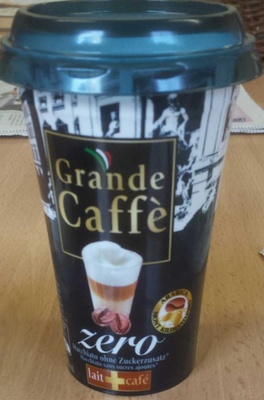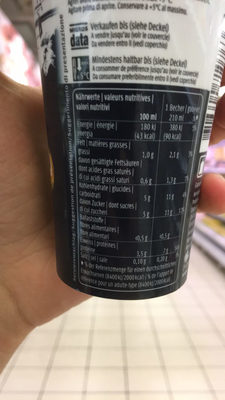Grande café Zero - Elsa - 210 ml
This product page is not complete. You can help to complete it by editing it and adding more data from the photos we have, or by taking more photos using the app for Android or iPhone/iPad. Thank you!
×
Barcode: 7616600710763 (EAN / EAN-13)
Common name: café
Quantity: 210 ml
Packaging: fr:Goblet en plastique
Brands: Elsa, Grande Caffè
Categories: Plant-based foods and beverages, Beverages, Plant-based foods, Hot beverages, Artificially sweetened beverages, Coffees, Unsweetened beverages, fr:Café à emporter
Labels, certifications, awards: Contains a source of phenylalanine
Origin of ingredients: fr:lait suisse
Manufacturing or processing places: Suisse, Esla
Stores: Migros
Countries where sold: Switzerland
Matching with your preferences
Environment
Packaging
Transportation
Report a problem
Data sources
Product added on by frederic
Last edit of product page on by packbot.
Product page also edited by foodrepo, openfood-ch-import.








